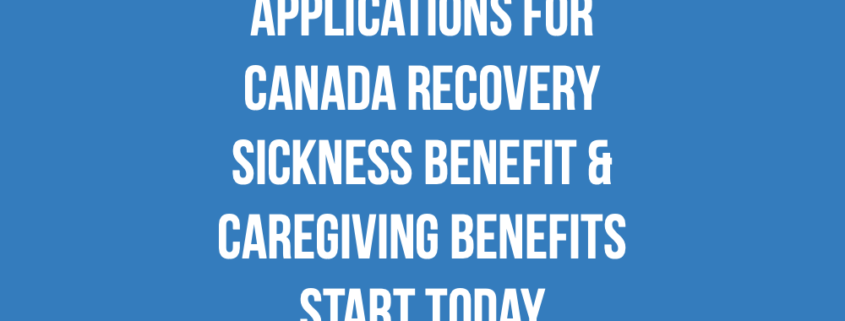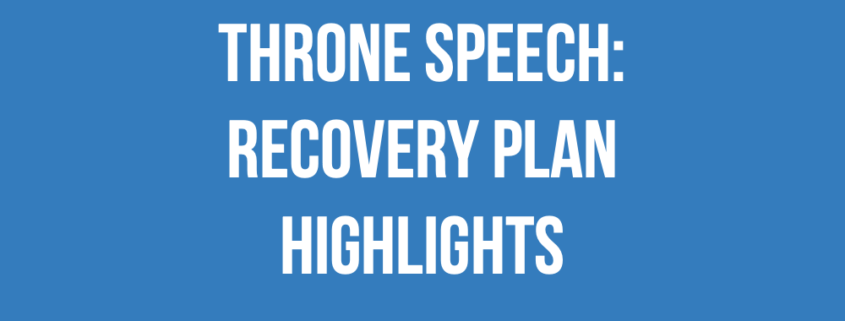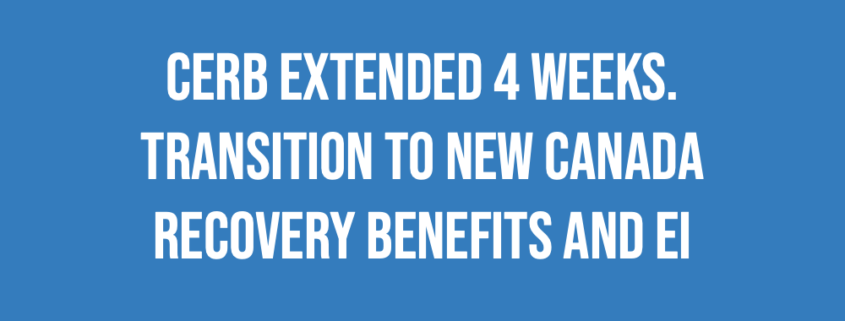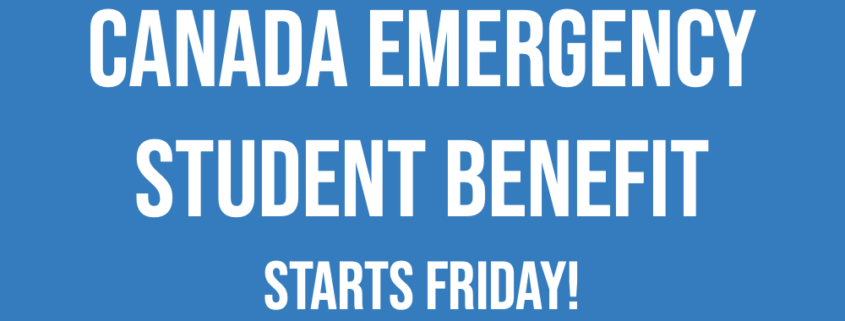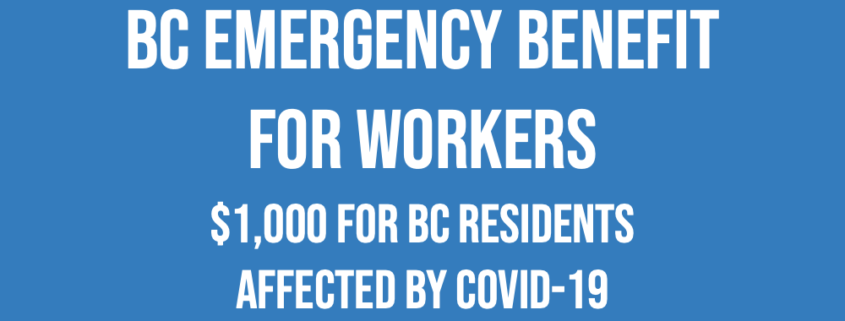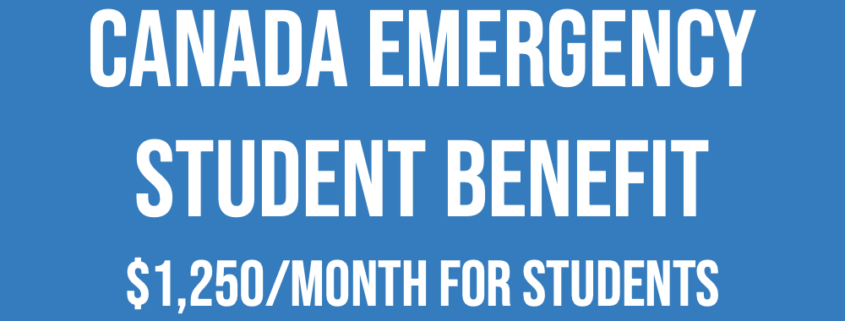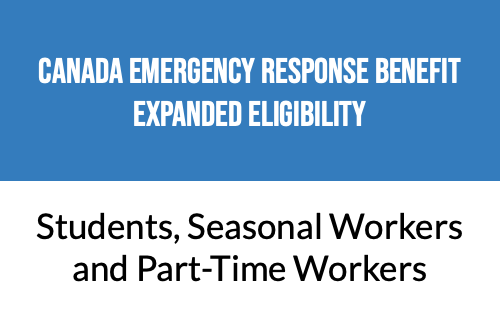Applications for Canada Recovery Sickness Benefit and Caregiving Benefit starts today!
Starting October 5, 2020, the Government of Canada will be accepting online applications for the Canada Recovery Sickness Benefit (CRSB) and the Canada Recovery Caregiving Benefit (CRCB).
From Canada.ca:
Canada Recovery Sickness Benefit (CRSB)
The Canada Recovery Sickness Benefit (CRSB) gives income support to employed and self-employed individuals who are unable to work because they’re sick or need to self-isolate due to COVID-19, or have an underlying health condition that puts them at greater risk of getting COVID-19. The CRSB is administered by the Canada Revenue Agency (CRA).
If you’re eligible for the CRSB, you can receive $500 ($450 after taxes withheld) for a 1-week period.
If your situation continues past 1 week, you will need to apply again. You may apply up to a total of 2 weeks between September 27, 2020 and September 25, 2021.
Eligibility:
To be eligible for the CRSB, you must meet all the following conditions for the 1-week period you are applying for:
-
You are unable to work at least 50% of your scheduled work week because you’re self-isolating for one of the following reasons:
-
You are sick with COVID-19 or may have COVID-19
-
You are advised to self-isolate due to COVID-19
Who can advise you to self-isolate
-
You have an underlying health condition that puts you at greater risk of getting COVID-19.
Who can advise you to stay at home due to your health condition
-
-
You did not apply for or receive any of the following for the same period:
-
Canada Recovery Benefit (CRB)
-
Canada Recovery Caregiving Benefit (CRCB)
-
short-term disability benefits
-
workers’ compensation benefits
-
Employment Insurance (EI) benefits
-
Québec Parental Insurance Plan (QPIP) benefits
-
-
You reside in CanadaDefinition
-
You were present in Canada
-
You are at least 15 years old
-
You have a valid Social Insurance Number (SIN)
-
You earned at least $5,000 (before deductions) in 2019, 2020, or in the 12 months before the date you apply from any of the following sources:
-
employment income
-
self-employment income
-
maternity and parental benefits from EI or similar QPIP benefits
What counts towards the $5,000
-
-
You are not receiving paid leave from your employer for the same period
You need all of the above to be eligible for the CRSB.
Canada Recovery Caregiving Benefit (CRCB)
The Canada Recovery Caregiving Benefit (CRCB) gives income support to employed and self-employed individuals who are unable to work because they must care for their child under 12 years old or a family member who needs supervised care. This applies if their school, regular program or facility is closed or unavailable to them due to COVID-19, or because they’re sick, self-isolating, or at risk of serious health complications due to COVID-19. The CRCB is administered by the Canada Revenue Agency (CRA).
If you’re eligible for the CRCB, your household can receive $500 ($450 after taxes withheld) for each 1-week period.
If your situation continues past 1 week, you will need to apply again. You may apply up to a total of 26 weeks between September 27, 2020 and September 25, 2021.
Eligibility:
To be eligible for the CRCB, you must meet all the following conditions for the 1-week period you are applying for:
-
You are unable to work at least 50% of your scheduled work week because you are caring for a family member
-
You are caring for your child under 12 years old or a family member who needs supervised care because they are at home for one of the following reasons:
-
Their school, daycare, day program, or care facility is closed or unavailable to them due to COVID-19
-
Their regular care services are unavailable due to COVID-19
-
The person under your care is:
-
sick with COVID-19 or has symptoms of COVID-19
-
at risk of serious health complications if they get COVID-19, as advised by a medical professional
-
self-isolating due to COVID-19
-
Who can advise a person under your care to self-isolate
-
-
You did not apply for or receive any of the following for the same period:
-
Canada Recovery Benefit (CRB)
-
Canada Recovery Sickness Benefit (CRSB)
-
short-term disability benefits
-
workers’ compensation benefits
-
Employment Insurance (EI) benefits
-
Québec Parental Insurance Plan (QPIP) benefits
-
-
You reside in CanadaDefinition
-
You were present in Canada
-
You are at least 15 years old
-
You have a valid Social Insurance Number (SIN)
-
You earned at least $5,000 (before deductions) in 2019, 2020, or in the 12 months before the date you apply from any of the following sources:
-
employment income
-
self-employment income
-
maternity and parental benefits from EI or similar QPIP benefits
What counts towards the $5,000
-
-
You are the only person in your household applying for the benefit for the weekWhat is considered a household for this benefit
-
You are not receiving paid leave from your employer for the same period
You need all of the above to be eligible for the CRCB.
Canada Recovery Benefit (CRB)
The CRB provides $500 per week for up to 26 weeks for workers who have stopped working or had their income reduced by at least 50% due to COVID-19, and who are not eligible for Employment Insurance (EI).
Applications will open on October 12

